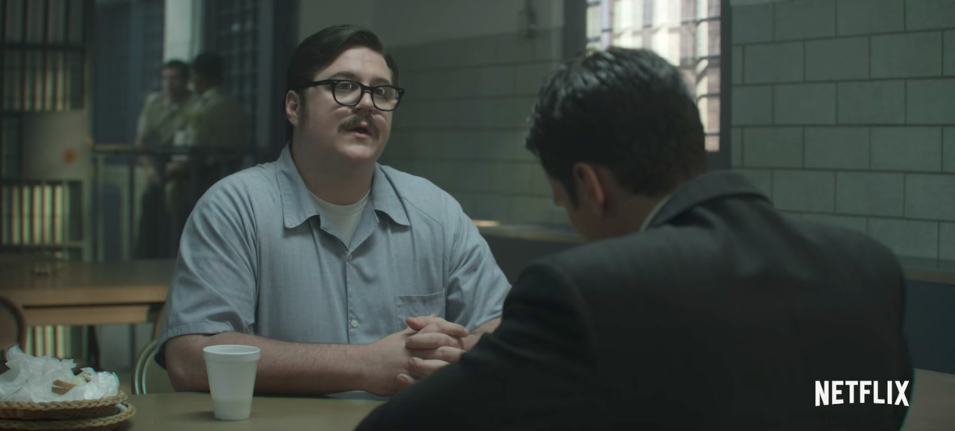Imagine a police confrontation scene: megaphones, reporters, flashing police lights, roaring sirens, a chilling darkness covering the crowd. A stern and confident hostage negotiator impatiently paces back and forth attempting to reason with the criminal. The scene is instantaneously recognizable.
Despite similarities to the opening scenes of many police dramas gracing television, Netflix’s new serial killer drama Mindhunter attempts to defy glamorized Hollywood portrayals of both crime and law enforcement.
Taking place in 1970s America, Mindhunter follows rookie FBI hostage negotiator Holden Ford as he attempts to understand the minds of serial killers through the intersection of psychology and criminology. Angered by the bureau’s inability to properly educate agents, Holden attempts to push the importance of environment in influencing criminal motive rather than the notion of “crazy from birth.”
In his idealistic quest for understanding, Holden undergoes harsh criticism and ridicule from his peers. Despite this, he attends school hoping to learn about sociology and reframe training to teach negotiators better tactics. Holden believes a negotiator should be patient with the criminal, and understand him and listen to him rather than instinctively shooting.
He also believes these misunderstood criminals not only have an interesting story to tell, but provide important insights into better understanding the relationship between crime and mental illness. His carpe diem mindset is both seemingly heroic and gutsy.
The first episode follows Holden in the aftermath of presumably one of his first negotiations. After the criminal shoots himself, Holden is disturbed by the outcome and views the altercation as unsuccessful. Upset, Holden fights with his boss, who tells him the FBI recognizes any negotiation limiting civilian casualty as a success.
With knowledge gained from courses he audited at the University of Virginia, Holden begins implementing mock confrontation scenes in the classes he teaches at the FBI Academy in Quantico. Facing backlash for his changes, he is referred to the Behavioral Science Department at Quantico, where he meets Agent Bill Tench and begins accompanying him on teaching trips to local police departments, only to receive further criticism for his idealism and philosophical approaches.
In many ways, Holden represents an innocent and somewhat sensitive character in a world and field defined by aggression, gore, strength and domination. Holden is stiff, and though confident in negotiating and understanding the minds of criminals, he is both self-conscious and awkward. For example, in defining his relationship with a new love interest, he insecurely shies away from the discussion. Until halfway through the first episode, he is uncorrupted by both drugs and cigarettes.
Episode two picks up with Holden boarding a plane to San Francisco with Agent Tench to teach a group of police officers in Santa Cruz. During his vacation, he hopes to meet with infamous cult leader Charles Manson, something Tench scoffs at as utterly impossible. In the end, he meets with serial killer Ed Kemper and is fascinated by both his demeanor and explanation of his crimes.
Although Mindhunter is set several decades in the past, its themes still resonate today, as the increasing frequency of terror attacks and hate crimes has expanded our notion of what motivates murder.
While the criminal justice system today has shown much improvement, the connection between mental health, psychology and criminology bears further exploration. In a modern-day understanding, Mindhunter calls for the constant need for improvement in research to understand the complexity of the human mind.



